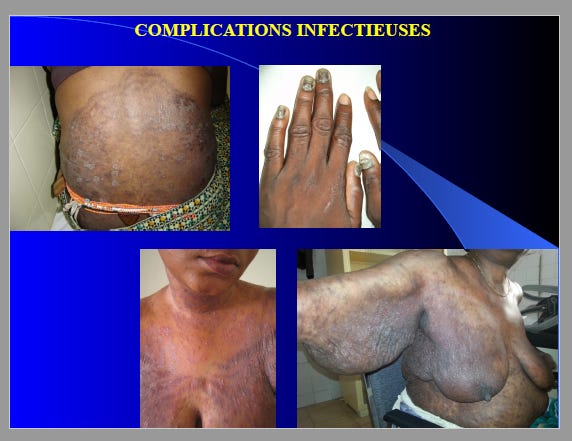Bleaching remains Africa’s health headache
Despite massive campaigns against the practice, bleaching remains rampant in Africa, with some of the drivers being the desire to have fair skin and use it as a weapon of seduction
Despite efforts to stop it, the practice of bleaching, or lightening one's skin with chemicals for cosmetic purposes, remains widespread in Africa.
Professor Moussa Diallo, a dermatologist from Senegal, said this recently during the Harm Reduction Exchange Virtual organized by Integra Africa, in collaboration with Phillip Morris International, saying this is due to societal standards of beauty, a desire to use bleached skin as a tool for seduction, and the influence of celebrities and media figures.
Professor Diallo stated that bleaching is a "real social phenomenon" in Africa, with various names for the practice in different countries, and that it affects all social classes, with educated individuals comprising 49% of users and singles making up 39%.
The use of bleaching products, including strong corticosteroids, hydroquinone, mercury-based products, oxidants, and glutathione, can lead to skin cancer and serious infections requiring hospitalization in sub-Saharan Africa.
Professor Diallo noted that campaigns have been launched at various levels of society to discourage young girls and women from bleaching and to raise awareness of the dangers of the practice, as well as to promote positive messages about the beauty of black skin and its connection to African identity.
Alternative products, including natural plant-based products, vitamins A, C, E, PP, glycolic acid, Depiwhite, and Topicrem Mela, are being used as part of efforts to reduce the use of harmful bleaching products.




